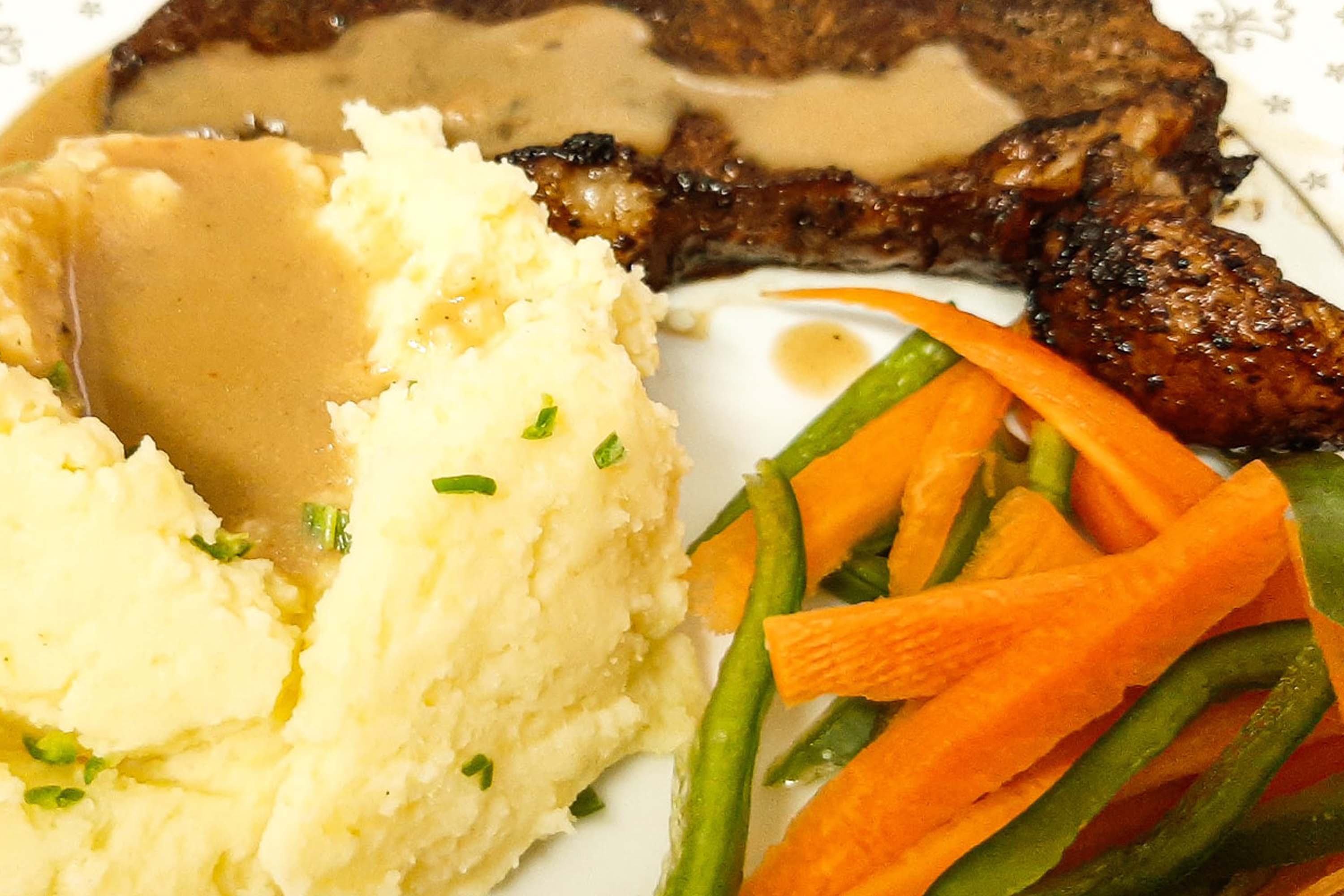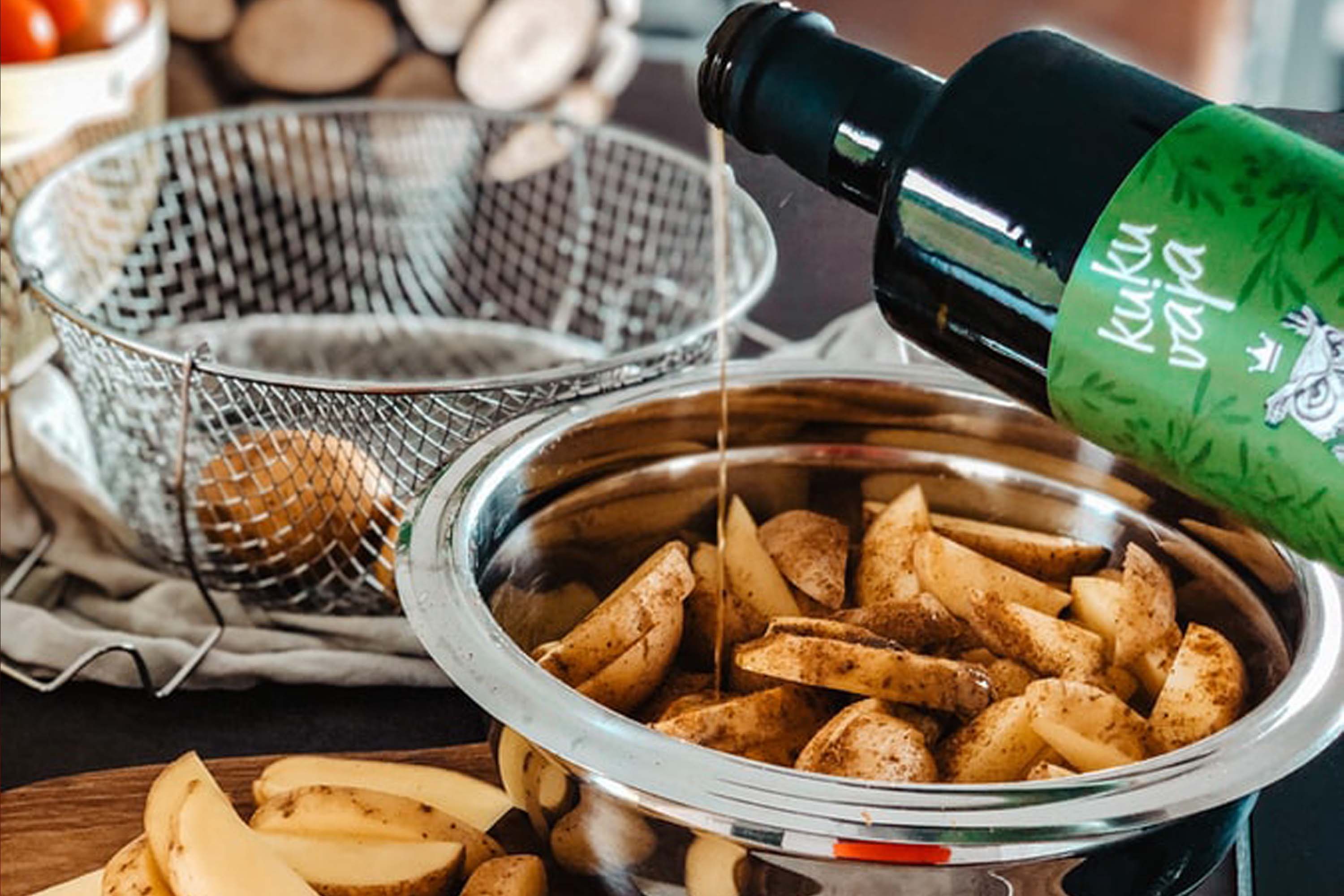Exposing foods to frost is the optimal and the fastest way to make them last way longer than if we would just toss them into the ordinary fridge.
And it is a widespread practice to frost your meals and various ingredients or even raw goodies for later utilization.
However, applying this method has one yet rather disturbing issue, and that is the way frost influences the quality of goodies.
Since mashed potatoes are one of the quickest, simplest, and one of the most popular foodstuffs people cook, no wonder most of us prefer to save it for later in a frosting camera!
But how to freeze mashed potatoes correctly? Will it stay edible long enough?
Will its texture not get ruined because of the cold?
In the article below we gathered all the detailed answers to these and several other inquiries. So read and enjoy!
Can Mashed Potatoes Be Frozen?
Shortly speaking, yes, mashed potatoes can be exposed to frost for preserving this dish. More than that, this goodie deals with frost pretty well which is a great piece of news for all the lazy and busy housewives! However, to complete this task successfully and not to end up with a totally ruined and non-consumable foodstuff, one needs to keep in mind several life hacks for sure.
- To freeze mashed potatoes successfully and end up with the foodstuff that obtains the same smooth texture after defrosting, consider what sort of root crops are picked up for preparing a dish. Our advice is to opt for those sorts that are lower in starch (for instance, waxy red potatoes or Yukon Gold) since it will help to escape the scenario when the defrosted goodie becomes grainy. Nevertheless, if you make your masher from a root crop mix using both starchy and waxy sorts, that will be fine.
- Consider what recipe will be used for cooking. The trick with freezing mashed potatoes is in picking the recipe that uses butter and cream since those dairy fatty ingredients will ensure your yummy will survive the frost well and will not turn into a dry and grainy mess. On the contrary, if we make use of a recipe that asks for oil and broth, such mashers will lose the smooth texture after reheating.
Apparently, there is no such thing as the best way to freeze mashed potatoes since everything hangs upon what type of freezing one prefers.
It can be either group serving or single serving, and each will require a slightly different approach which we will describe below.
Anyway, mashed potatoes will freeze best of all when being properly cooked, having an even and smooth texture with no clumps, and containing enough dairy fats (remember butter and cream!).
We would also not recommend adding various incorporations like fried onions or chives prior to freezing since they will not look good after defrosting.
It is always better to add them later to the reheated foodstuff to add more aroma and taste!

Is It Possible to Freeze Potatoes?
There is the question that sooner or later starts bothering all home chefs, and it is about preserving the root crops as they are. Can potatoes be frozen? Let’s try to figure it out step by step.
First of all, can you freeze raw potatoes?
Well, we need to admit that this root crop does not deal well with frost when being raw. You see, when being raw, potatoes contain too much water which means they will not frost well and will rather become grainy, mushy, or watery when exposed to frost.
For this reason, it is strongly recommended to partly cook them first before tossing them to the frosting camera.
The optimal way to do that is to quickly blanch the root crops:
- peel them
- cut in cubes or wedges, or chunks
- keep them in boiling aqua until tender but still somewhat hard at the same time
- drain, plunge into icy aqua to stop the cooking process, drain once again, and let them cool completely
- once they are dry and cool, place potatoes on a baking sheet far enough from each other, and frost for six to twelve hours (until solid)
Such root crops can safely go into the frost-safe packets and be preserved long-term now!
What about a cooked goodie?
Can cooked potatoes be frozen?
Here everything becomes way simpler since when being thermally processed (no matter how), these root crops transform into a foodstuff that is way more suitable for long-term keeping in frosty surroundings.
So if you are thinking of preparing some fries, hash browns, or roasted wedges, and you need to know how to freeze potatoes (and sweet potatoes too, by the way) for that, cook them partly first.
Like that, they will not only survive the frosting camera but they will also take you less time for actually cooking compared to the wholly raw goodies.
Freezing Mashed Potatoes. A to Z guideline
So now that we figured out that mashed potatoes are fine with being frosted, the question may arise of how to do that exactly. Experienced home chefs and housewives know very well that certain foodstuffs and veggies are rather demanding when it comes to this kind of preservation.
When being done wrong, freezing may sometimes turn into a disaster and ruin the foodstuff!
This is why in order to prevent any misfortune, we prepared the optimal freezing mashed potatoes recipe so that even a kitchen newbie can make use of it successfully!
The good thing about freezing this dish is that the process does not require any brain-twisting schemes and supplies, just your mashers and one or several tanks (or frost-resistant packets if you prefer those). So, let’s begin!
- First of all, you surely need to have your dish ready. Note that mashed potatoes must be completely cooled before we place them into the frosting camera! If the foodstuff is still even a bit warm, the contact with frost may lead to its sooner spoilage. Better don’t play with destiny, and wait until it is cool.
- Decide what kind of container it will be placed in. A small tip: frost-resistant packets are better for preserving several large portions at a time (for instance, for frosting group servings). Such flat packets take less place in a frosting camera in comparison to rigid plastic or glass tanks, and they need no afterward washing just proper disposal.
To use these ones, stuff them with mashers and press the excess air out, then pat the packets out so that the content will be distributed evenly, and close the zip lock tightly.
For preserving small single portions, try out a scoop-freezing scheme: place scoops of mashed goodies on a baking sheet covered with parchment, and frost until solid.
Then simply transfer those potato scoops into a packet, and preserve. As a variant, feel free to opt for a muffin pan.
Once the foodstuff is sorted, place the packets into the frosting camera.
This is basically all. Of course, double-check that you have labeled the packets with the date their content was frosted so that you could know for sure when it will be time to finish it. The same approach works for freezing leftover mashed potatoes. Again, remember to wait until the dish is completely cool before scooping it into the packets!
How to Reheat Frozen Mashed Potatoes
Some might think that reheating frozen mashed root crops is a tricky and difficult task, but in fact, it is as simple as frosting it.
More than that, we know several ways of reheating it in case the dish is needed right now and one has no time for an extended thawing and warming.
Basically, the gentlest way to unfreeze mashers is to place the dish in the fridge overnight. Like that, its texture will not suffer, but the process will take some time for sure.
If you are not that plan-ahead kind of person, or you suddenly need to warm the foodstuff up, better opt for one of the following suggestions:
Stovetop
Using a covered saucepan, warm your frozen or defrosted mashed root crops slowly over low heat. Stir the foodstuff now and then to skip burning it until it is heated through properly, and if you see that it starts getting too dry, feel free to add more cream, milk, or butter.
Microwave
Simply place the frozen foodstuff into a microwave-safe bowl, cover it to hold some steam in and not let the content dry out, and warm up on 50 percent power for nearly five minutes remembering to stir. For an already unfrosted goodie, use less time for warming up.
Oven
Preheat the oven to 350 F, and place the frozen or defrosted mashers there in a covered oven-safe dish. Keep warming it for twenty to thirty minutes stirring now and then to distribute the warmth evenly.

Slow cooker
This approach works perfectly when we need to warm up a large batch of foodstuff for a crowd. So what we need to do is to defrost potatoes in the fridge previously, and then heat in a slow cooker for two hours (or more if needed) on low heat.
Frozen Mashed Potatoes Lifespan
Like any frosted foodstuff, mashed potatoes have a certain lifespan that will one day run out. But how long can you freeze mashed potatoes safely like that?
Well, the longest term will be around ten months if you used a proper sort of low-starch potato and the dish contains enough dairy fats (meaning you added either cream or butter or both when you were cooking it).
Nevertheless, for being of the best quality and taste, mashed potatoes can spend nearly six months in a freezer. If we keep them longer, the texture and flavor may slightly degrade.
As for leftovers, those will have a significantly shorter durability period of almost three months when being kept in a frosting camera.
[table id=116 /]
As we can see, the dish is rather long-lasting which makes it an ideal pick for busy homes when we need to heat up some food really quickly to feed the hungry kids or grab something to eat ourselves when being short on time.
Can Mashed Potatoes Go Bad?
The most awful nightmare of any prudent housewife is when we must throw away the food that turned old and eventually spoiled.
Of course, nobody likes discarding what they cooked, and it is not only about sending the used groceries into the trash bin. It is also about figuratively throwing away the time and effort one spent on cooking the dish.
Not a pleasant feeling, we agree.
This is why being able to tell when a certain dish starts showing the earliest symptoms of spoilage is so essential since it allows us to prevent the worst scenario and save the food if that is still possible.
What about mashed potatoes, some may wonder? Does this foodstuff spoil fast and easily? Well, usually, this dish is not the one that can turn bad in a blink of an eye. However, if we use dairy fats in it (for instance, cream, milk, butter or cream cheese), the risk of spoilage happening sooner will be higher, especially after the repeated warming up.
So how to tell whether our yummy is about to turn bad?
- Check the texture. If there is any liquid that is separated from the solids, it means that the dish is about to begin to spoil. If the liquid is rather fair and we can easily mix it back into the potato mass, it is not bad yet and can still be consumed safely. However, it is definitely a sign we must keep an eye on that foodstuff!
- If the liquid keeps on separating and forms a white haze, then the dish is better not to be eaten.
- Sour odor is another sign that mashed potatoes turned bad and we shall not consume the foodstuff.
Once you sense the sour smell or that white haze, discard the food instantly without hesitation for it can be dangerous to eat!
Now you are aware of how to freeze mashed potatoes, and how much time your frozen mashed potatoes will be able to spend in a frosting camera safely.
We even showed a comparative chart with the shelf lives of mashed and cooked potatoes and their leftovers to see the difference in their durability.

Since this is really an awesome dish that is easy to make and the same easy to keep, simply ensure your mashers are cooked according to the basic suggestions we shared in this article, and then no frost will be a threat!
The foodstuff will remain tasty and smooth as if it has just been taken out from the casserole!
[wp-faq-schema title=”Frequently Asked Questions”]

Can you freeze leftover mashed potatoes? Will it somehow affect its taste? I have pretty much left so it’ll be nice if it will last long enough.
Definitely freeze it! It won’t last the same long as the fresh dish, but you will be able to use it within 2-3 months for sure. I didn’t notice any taste changes, by the way, so I guess you shouldn’t worry about that.
Hi everyone! Can anyone tell me what’s the best way to freeze mashed potatoes? Shall I use large packs or small containers?
As for the containers, it’s up to you. I use both packets and muffin pans so that I can have a large batch for a whole family and small portions for myself or kids.
Anyway, for me, the best way to freeze it is to simply place the cooled dish into whatever you choose as a container, press the air out (that’s important!), and freeze.
For how long can you freeze mashed potatoes safely without ruining its flavor and texture? Mine always turn dry and kind of grainy. Do I do anything wrong?
Normally, the dish lasts for almost a year. But I’d say that its best quality remains when you keep it for no longer than 6 months. Maybe, you just always kept yours longer? Or you used the dish made of starchy potatoes – that makes the dish get grainy as I noticed.
I need your help! Can you freeze cooked potatoes whole and peeled? Will they freeze well?
I’d not recommend doing that. There’s a risk of them getting too hard. I always cut them in cubes of wedges, like that, the potatoes get frosted evenly.
Is a chest freezer OK for storing mashed potatoes? Has anyone tried it before?
Well, why not? If the temperature is the same as in a common freezer, then use that one.